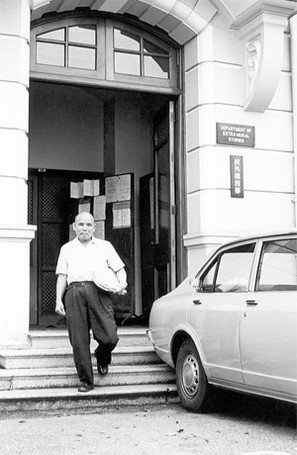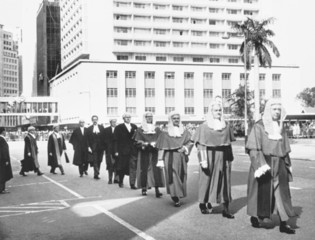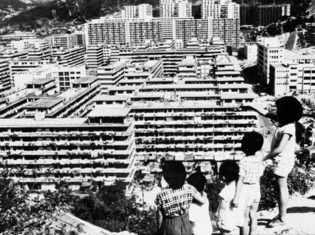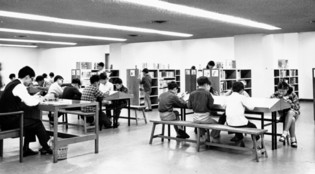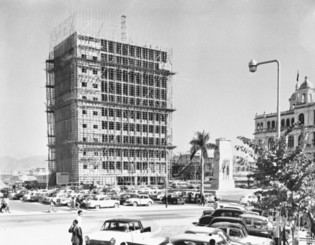About Milestones
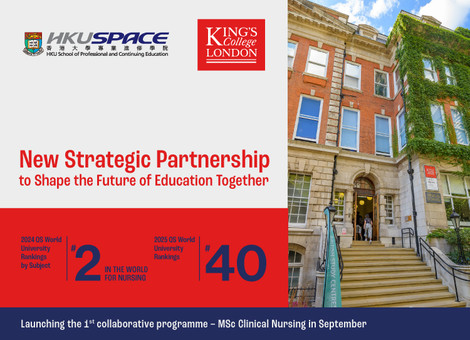
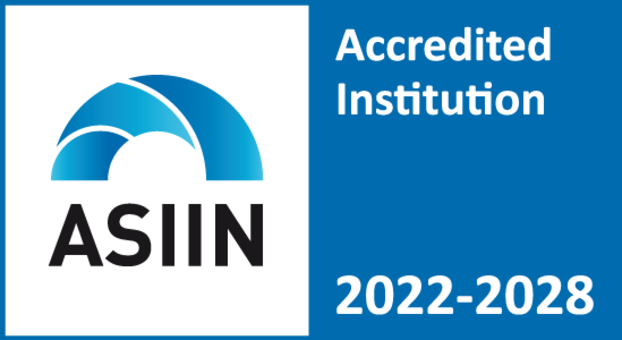
ASIIN SEAL
Close tooltips
After providing professional and continuing education for 63 years, the School’s course enrolments have reached 3 million.
Close tooltips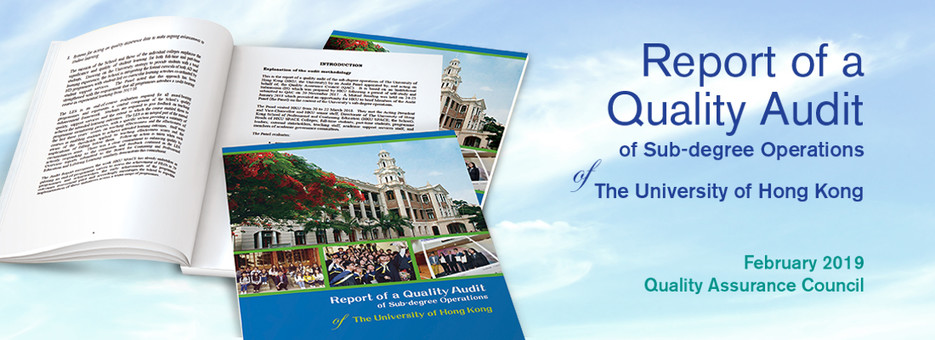

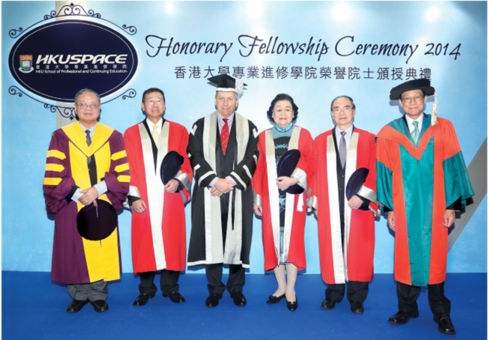
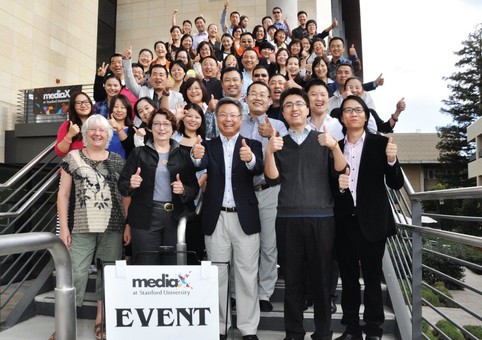
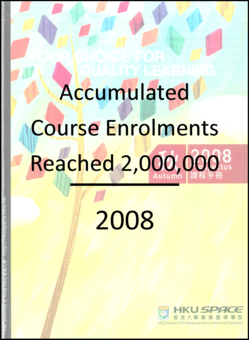
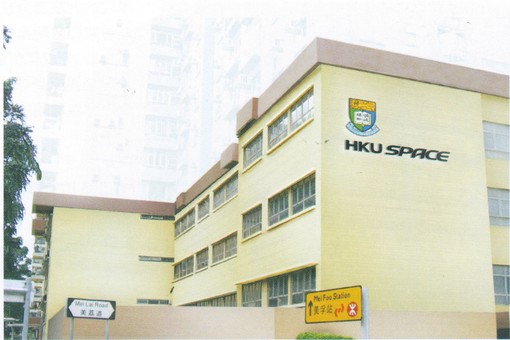
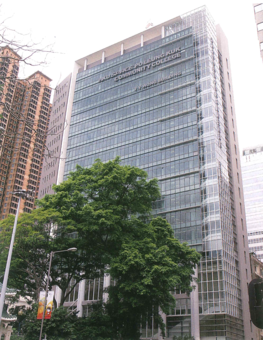
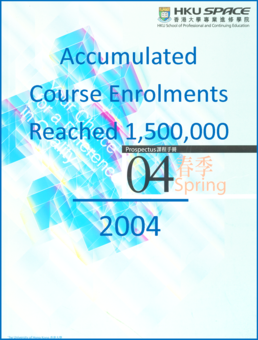
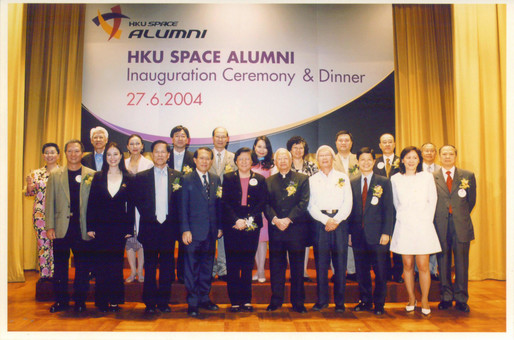

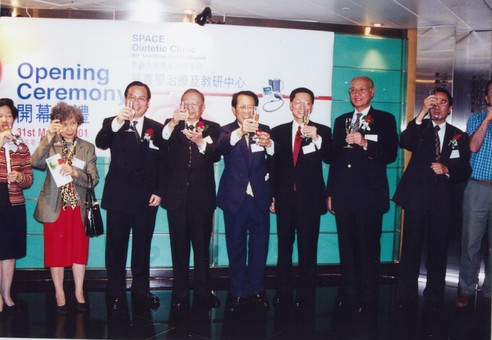
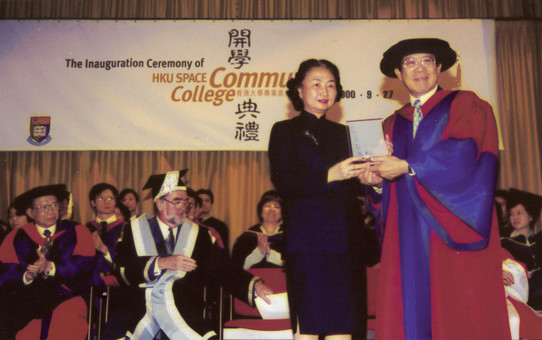
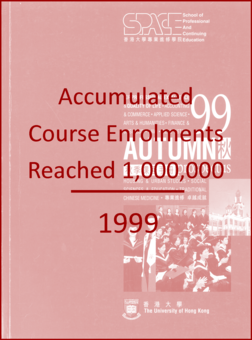
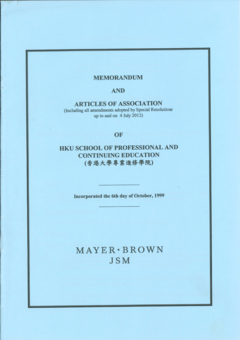
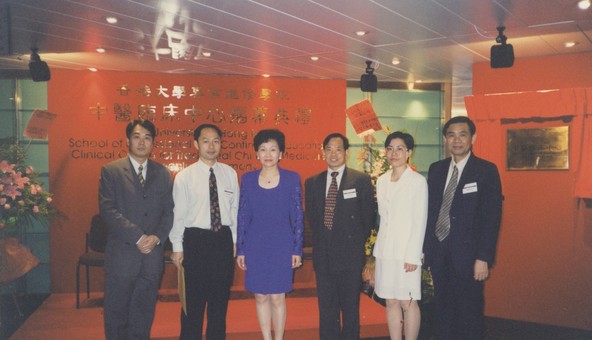
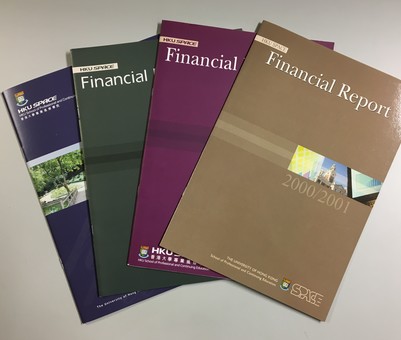
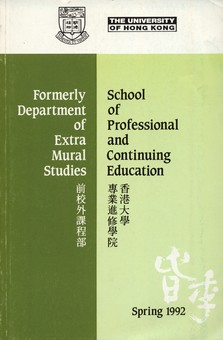
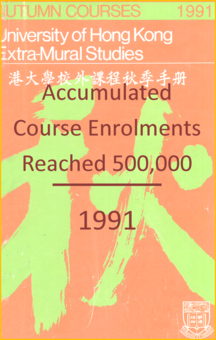

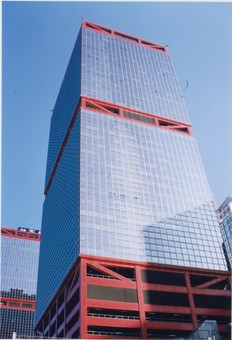
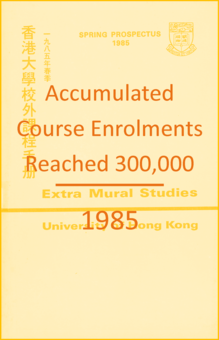
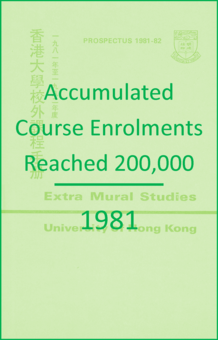
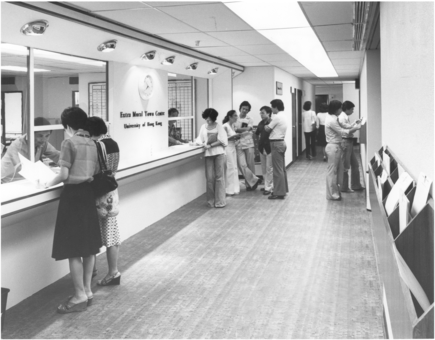
Courtesy of HKU Communications and Public Affairs Office
Close tooltips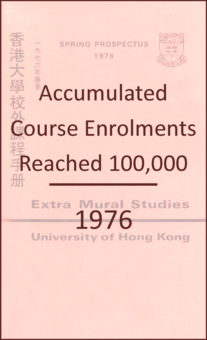
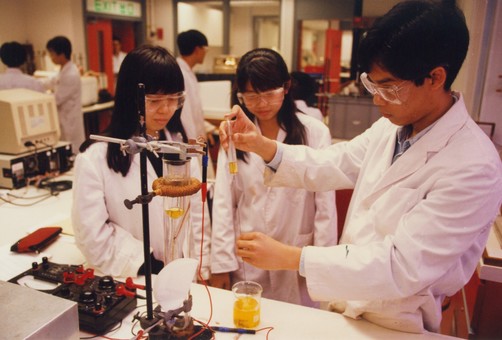
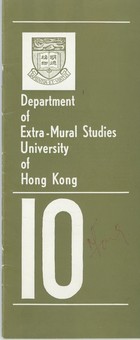
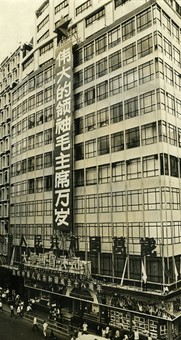
Courtesy of The Standard
Close tooltips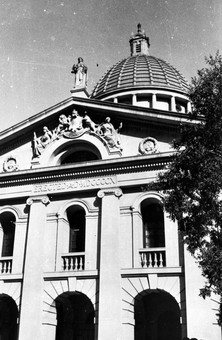
Courtesy of Government Records Service
Close tooltips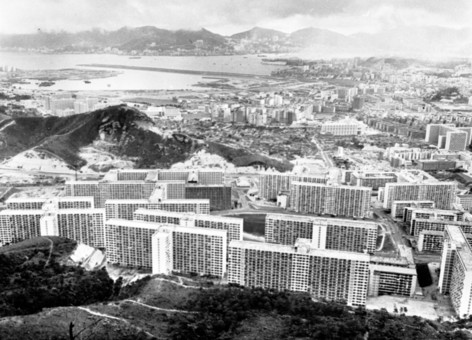
Courtesy of Government Records Service
Close tooltips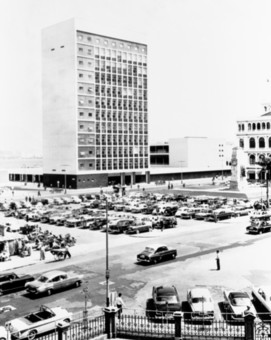
Courtesy of Government Records Service
Close tooltips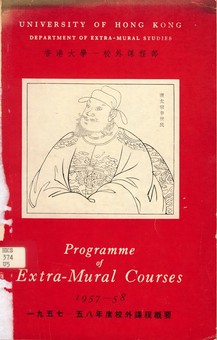
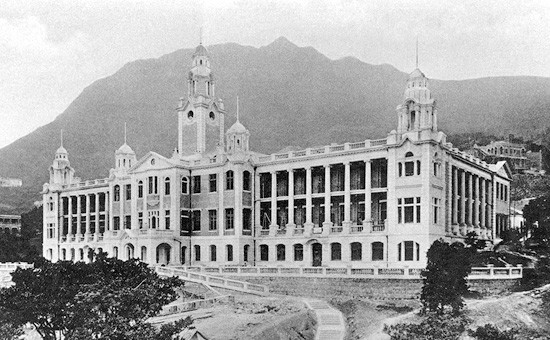
The Department of Extra-Mural Studies of HKU (HKU SPACE’s predecessor) established the first law degree programme in partnership with the Unviersity of London (UoL) in 1963/64, marking a significant milestone in Hong Kong's legal education. Over the years, the School and UoL have expanded their programmes to include various disciplines such as Accounting, Banking, Business, Economics, Finance, Management, Computing and Information Technology, catering to the evolving needs of society. The partnership between UoL and the School has endured for 60 years, making it the longest-standing collaboration of all of the universities that UoL has worked with around the world.
In September 2009, the School became an Affiliate Centre of UoL in Hong Kong and a Recognised Teaching Centre in 2018. To further cement the relationship, a Strategic Partnership Agreement was also signed in 2018 and renewed in 2023 committing both partners to continued collaboration in the academic and professional fields. For the past decades, the School has provided a one-stop service for application and registration for admission to many undergraduate degree programmes of UoL. These services are offered for the convenience of all Hong Kong applicants whether or not they are HKU SPACE students.
HKU SPACE is delighted to announce its new strategic collaboration with King's College London (King’s), one of the world's top 40 universities according to the 2024 QS World University Rankings and among the oldest in England. This momentous partnership entails a Collaboration Agreement that will facilitate academic collaboration and the joint offering of King's programmes in Hong Kong. The first of these programmes will be the Master of Science in Clinical Nursing (MSc Clinical Nursing) launched in September. It also marks the first-ever collaboration between King's and an educational institution in Hong Kong, representing a significant milestone for HKU SPACE in transnational education.
HKU SPACE was awarded the ASIIN institutional accreditation seal as a follow up to its International Quality Review (IQR) which assessed the School against the Standards and Guidelines for Quality Assurance in the European Higher Education Area (ESG) in October 2021. The German Agency, the Accreditation Agency for Study Programmes in Engineering, Informatics, Natural Sciences and Mathematics (ASIIN) confirms that HKU SPACE fulfils the institutional, procedural and cultural requirements for good teaching and successful learning. The experts commend that “HKU SPACE's institutional leadership is particularly strong, and the institution is procedurally rigorous.” Finally the Panel concluded HKU SPACE has a strong base to build on and promising potential of further developing into a World Class Centre of Excellence in Continuing Education, Lifelong Learning and Transnational Education.
Since HKU SPACE was established in 1957, it has not only opened up a vast range of lifelong learning opportunities for the community, but also created many new precedents in response to the needs of the public. After 63 years serving the public, our initial enrolment of 330 students reached an accumulated total of 3 million in 2020, marking an important milestone for the School.
The School is deeply grateful for the support and trust the community has shown in the institution over the years. Now, with the emergence of today’s social distancing “New Normal” we have had to adapt and make many changes. But the public’s thirst for self-improvement, continuous learning and new skills has continued to grow.
To address these needs, the School will continue to fulfil its social responsibilities by providing ever more diverse programmes for citizens from all walks of life, and by nurturing new talent for different industries to meet the needs of society and support the individual development of the students.
HKU SPACE was highly commended by the UGC Quality Audit Report on the University’s sub-degree operations for Outstanding Academic Excellence for excellent policies and procedures, comprehensive and informative documentation, as well as the commitment and enthusiasm of the teaching staff, in both full-time and part-time sub-degree programmes. HKU SPACE was delighted by the positive comments which not only affirmed the School’s high level of commitment to quality assurance, but also paid tribute to the outstanding level of academic excellence for sub-degree programmes achieved by HKU quality assurance mechanisms for many years.
Following the 60th anniversary, the School opens its new chapter.
Series of celebrations have been held to commemorate the history and achievements of the School over the 60 years with its teachers, alumni, students and staff. Treasurable historic artefacts and stories in these 60 years have been unearthed to display how the School has grown with Hong Kong. Go to 60th Anniversary Website for more details.
2.62 million Course Enrolments and Counting
The School is providing education in broader aspects, with diverse profiles of students, achieving 2.62 million course enrolments in a short period of time, and it is still counting.
The School has served Hong Kong for over 50 years, and owes its achievements to the works of dedicated professional from a wide array of fields.
To show gratitude to those closely associated with the School and its mission of lifelong learning, the School established the HKU SPACE Honorary Fellowships in 2014.
The ICB is positioned as an innovative School of Business and Management with particular specialties.
In contrast to traditional business schools, the ICB adopts a holistic approach to professional and executive education, and advocates an innovative teaching methodology and proactive learning based on a unique 4P model. This places emphasis on being Professional, Prospective, Practical and Problem-solving.
The mission of the ICB is to help create and grow business talent with world-class leadership and management skills in the Chinese Mainland. Future corporate leaders will be equipped with cutting-edge knowledge, an international perspective, and an open mindset through a diverse range of professional and senior-executive programmes.

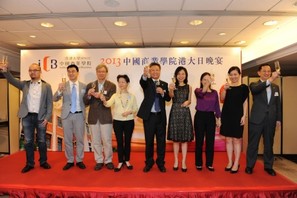
The School’s development has been aiming at offering more places and opportunities for secondary students, which accounted for the great boost in course enrolments, increasing from 1.5 to 2 million within just 4 years.
To provide better teaching and Chinese Medicine facilities and clinical services for the public, the School started operations at Kowloon West Campus.
The centre is a major anchor for Chinese medicine services with comprehensive facilities including a Chinese medicine clinic and pharmacy, a Chinese medicine specimen laboratory and a Chinese medicine resources centre for the public.
Collegiate structure established
The School has a collegiate structure, established in 2007.
HKU SPACE Community College
HKU SPACE Po Leung Kuk Stanley Ho Community College
HKU SPACE International College
College of Business and Finance
College of Humanities and Law
College of Life Science and Technology (incorporating with the Division of Chinese Medicine from July 2016)
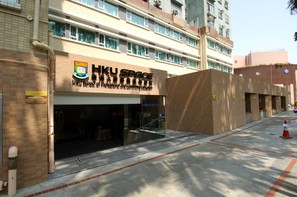
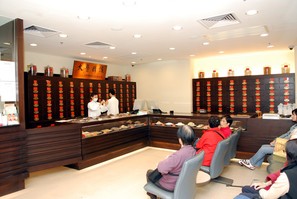
HPSHCC is a joint venture with a leading charitable association, the Po Leung Kuk.
In appreciation of a generous donation received from businessman and philanthropist Dr Stanley Ho, the College was officially renamed the "HKU SPACE Po Leung Kuk Stanley Ho Community College (HPSHCC)" in 2015.
The Associate Degree and Higher Diploma programmes offered by HPSHCC are planned and accredited by HKU SPACE in accordance with its stringent quality assurance processes. Successful completion of any programme offered by the College leads to an award within The University of Hong Kong (HKU) system through HKU SPACE.
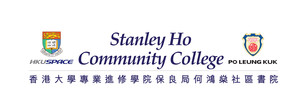

As the government promoted continuing education, course enrolments have been increasing steadily, exceeding 1.5 million.
HKU SPACE ALUMNI is inaugurated to build active and lifelong relationships amongst alumni members, and between the School and the ALUMNI.
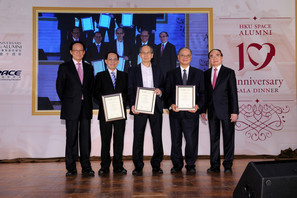
International College (formerly known as Centre for Degree Programmes) was established to offer full-time undergraduate programmes with duration between 10 and 24 months for sub-degree holders and programmes at year-one entry-level for IB/HKDSE graduates. All programmes are delivered in collaboration with public universities in the UK, Scotland and Australia.
As the demand for postgraduate qualifications is on the rise in Hong Kong, the College also offers full-time postgraduate diplomas, catering to the needs of degree holders. The College has put its full support behind arts and media education at postgraduate level through the introduction of two master’s programmes with Central Saint Martins (CSM), University of the Arts London and London College of Communication (LCC), University of the Arts London.
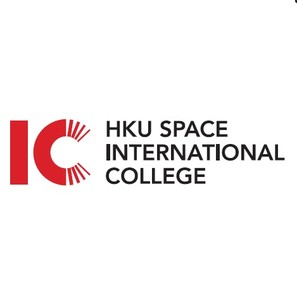
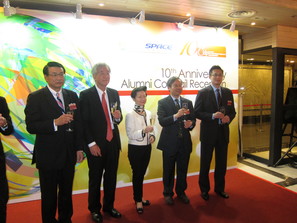
The Dietetic Clinic is committed to educate the community on proper nutrition and health concerns by offering all-round dietetic programmes. It is a teaching and training centre that complements both nutrition and dietetic courses offered by HKU SPACE, and provides the means for further research and development to help us benefit the community.
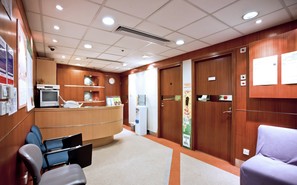
The Community College was the first college of its kind in Hong Kong, and is now regarded as a premier educational institution offering a comprehensive range of award-bearing programmes leading to sub-degree awards including Associate Degrees and Higher Diplomas in many subjects.
Successful completion of any academic programme offered by the CC leads to an award within the University of Hong Kong system through HKU SPACE.
The college’s high-calibre programmes are designed to align with the overall university curriculum with the aim of providing students with additional pathways to enter university degree studies as well as to prepare them for specific professions.

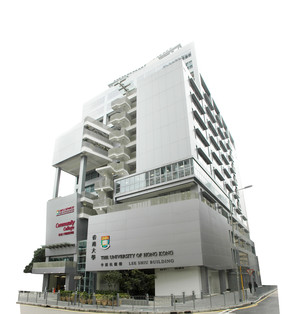
After nearly half of a century in providing extra-mural studies courses, the School’s course enrolments have reached 1 million.
“One advantage is that such a structure clearly differentiates our activities from public funding.
A corporate structure will allow the University to provide for more flexible and appropriate rules and procedures not open to the University as a publicly funded institution.”
A proposal for incorporation to the University Council in 1999
As the School was a non-profit organisation for educational purposes, the normal status of a “limited company” was not considered appropriate for the new entity. HKU SPACE was therefore re-formed as a “company limited by guarantee”.
The Division of Chinese Medicine in Kowloon West Campus was equipped with specialised reading rooms, a specimen laboratory and general laboratory to better support the teaching staff.
Our Chinese Medicine Clinics and Pharmacies at Admiralty and the Mei Foo Learning Centres serve primarily as clinical training centres for our Chinese Medicine trainee sessions and also provide general and specialist consultations for the public to support our educational programmes.
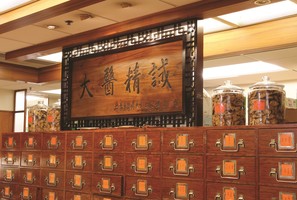
In the 1990s the School was granted financial autonomy and a corporate status so that it could plan its activities with greater flexibility and respond to the continuing and professional education market in more flexible, prompt and pro-active ways.
The restructuring of the Department of Extra-mural Studies as the School of Professional and Continuing Education (HKU SPACE) in January 1992 not only involved a change of name and structure, but also marked a significant transformation in the School’s status and identity both within the University and in the wider society.
Its enhanced status as a “School” within the University, placed HKU SPACE in a better position to proceed with its academic development.
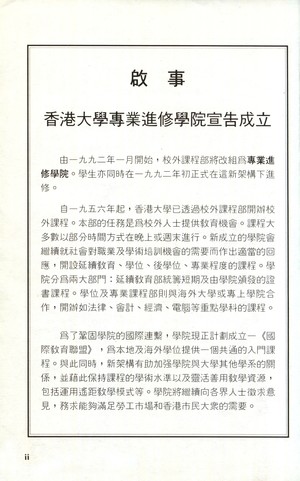 |
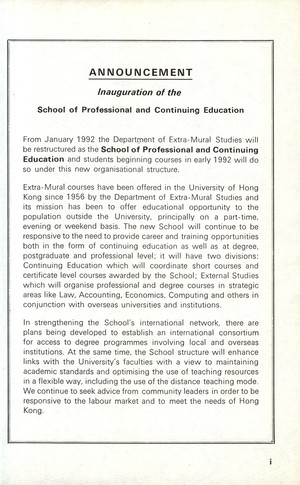 |
As the society’s needs grew rapidly, along with the demand for education, course enrolments exceeded 500,000 in 1991.
With nearly 30 years of effort in providing education, course enrolments exceeded 400,000.
The steady introduction and development of new professional and vocational programmes was increasing the need for extra office and teaching space. The first permanent Town Centre was acquired in 1982 to cater the needs of part-time adult students.
The Shun Tak Centre became a symbol of university continuing and professional education.
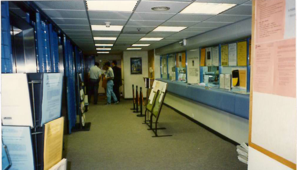
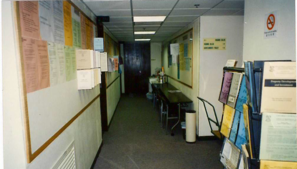
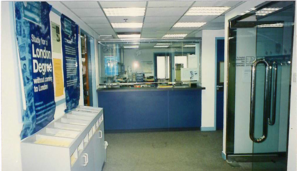
Until 1985, the DEMS course enrolments already reached 300,000.
In the late-1970s, the DEMS developed rapidly, resulting in doubling in numbers of course enrolments, grew from 100,000 to 200,000 within five years.
The new town centre went into operation in January 1978.
It had a floor area of around 15,250 square feet, with fourteen lecture rooms accommodating 600 students.
After moving to the Wing On Centre, the number of courses conducted in the Town Centre increased from 144 in 1977-78 to 268 in 1978-79.
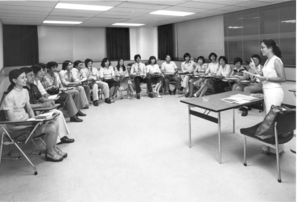
Courtesy of HKU Communications and Public Affairs Office
Close tooltipsFrom 330 course enrolments to accumulatively reaching 100,000 in 1976, marked a milestone for the DEMS.
In 1970s, a serious medical incident occurred due to the absence of medical laboratory technologists at night. Soon after this incident, the DEMS realised the need for more qualified medical laboratory technologists, and offered the first Certificate in Medical Laboratory Technology.
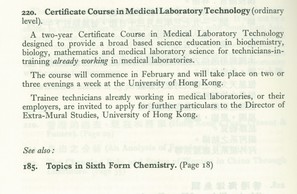
The new Extra-Mural Town Centre on the eleventh floor of Universal House (now known as Nanyang Commercial Bank Building), 151 Des Voeux Road Central, consisted of seven lecture rooms, two seminar rooms, two art studios and music rooms, one library and several offices with a capacity of around 300 students at any given time.
“It is strange to think that it is now ten years since the start of extra-mural work in Hong Kong. Its growth since then has certainly justified our bravest dream of 1956. The aim then was to create a movement in adult education which might match the energy and eagerness of the surrounding atmosphere. So far as I can judge, this has now been achieved, and the work of the University among the adult population has become a fully recognized and accepted feature of the Hong Kong scene. However, no such activity can ever rest on its achievements. It must be always on the move, always looking for fresh opportunities and challenges in the society around it. I am confident that you in Hong Kong will meet the coming ten years as effectively as you mastered the first.”
10th anniversary message from Mr Gerald Moore, the first Director of Extra-Mural Studies, Hong Kong University
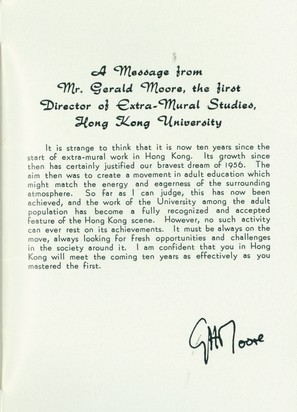
The 1965 Extra-Mural Town Centre in Central brought the DEMS more firmly into the community and facilitated the promotion of professional studies for working adults.

Courtesy of The Standard
Close tooltipsIn 1964, the DEMS offered an external LL.B. degree programme leading to Bachelor degree in Law jointly with the University of London.
|
Courtesy of Government Records Service |
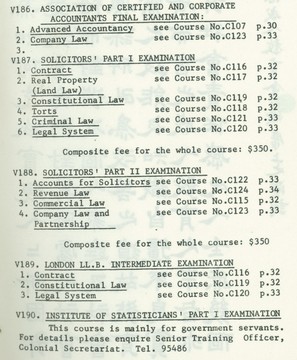
In 1953, the tragic fire in the Shek Kip Mei squatter area led the government to start an extensive public housing programme. As the new housing estates came on stream, there was an increasing need for qualified housing managers. In 1963, the DEMS in cooperation with the government started to offer a two-year training programme in Housing Management which later developed into a three-year Certificate in Housing Management course in 1969.
|
Courtesy of Government Records Service |
Courtesy of Government Records Service |
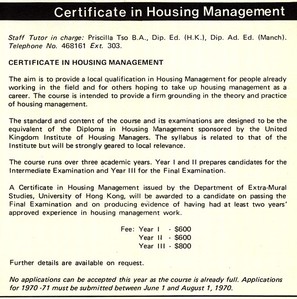
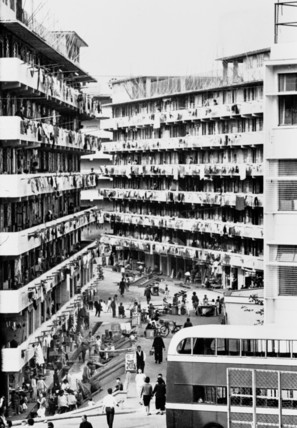
Courtesy of Government Records Service
Close tooltipsThe first modern library was opened in City Hall in 1962 and so the demand for librarians rose immediately. The DEMS responded by offering Hong Kong’s first librarianship course in Library Techniques in 1960, and later in 1964, organised an award-bearing programme jointly with the Hong Kong Library Association.
|
Courtesy of Government Records Service |
Courtesy of Government Records Service |
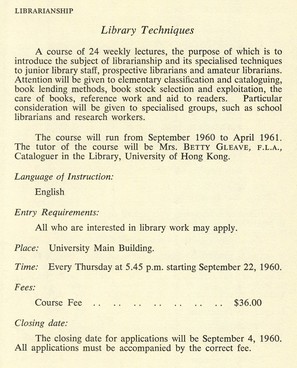
330 course enrolments in the first academic year, breeding the first batch of students, and witnessing the birth of the HKU DEMS.
The Department of Extra-Mural Studies (DEMS) of HKU was formally instituted by the University Court on 21 May 1957.
“Your Department [of Extra-Mural Studies], which was instituted by the Court yesterday, is the most important of all our departments as far as public relations are concerned. Planned aright and if given full scope, your work will touch every section of the community, every stratum of our society; it is the most important means of explaining or making available to the masses the knowledge accumulated by the few.”
A congratulatory message delivered by Sir Lindsay Ride, the Vice-Chancellor of HKU, dated 22 May 1957.
